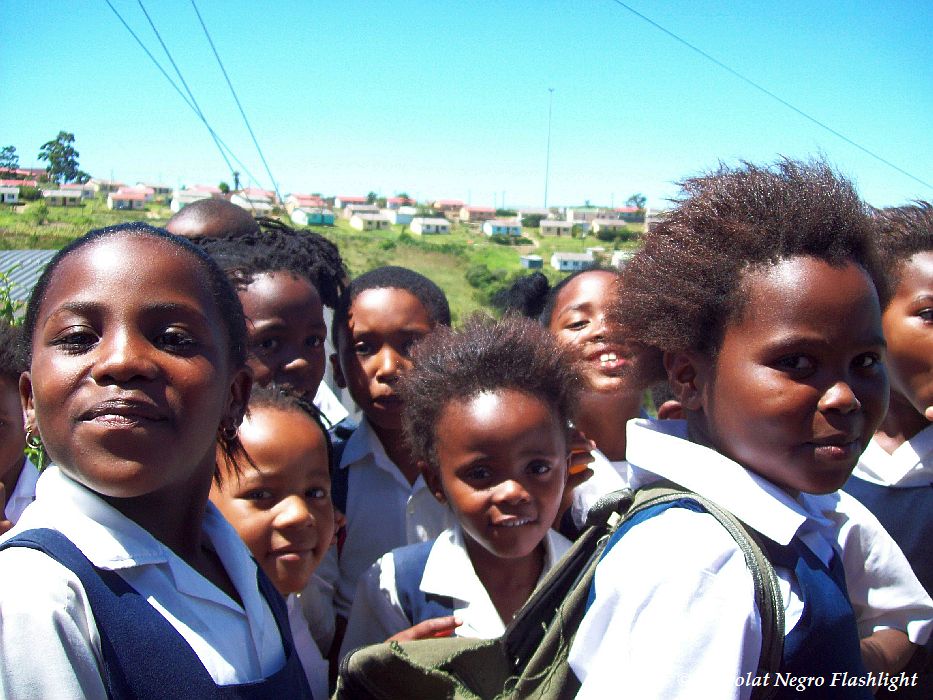“C’est comment “? my tailor asked. (How do you like it?)
“It is very, very nice”, I said, ” but I did not order puff sleeves!”
“What sleeves?”
“Puff sleeves, sleeves that look like big balloons at the shoulders”!
“Oh, but that is beautiful”
” Qui, je sais, mais je ne voulait pas ca !” (Yes, I know, but I did not want this!)
“But it is beautiful”. He had already turned back to his sewing machine.
That was the end of our conversation and I took my dress and walked down my street back home. The sun was sinking behind the trees and it was a lovely evening. The way of dressing yourself properly is considered an art in Mali. Each individual that I have met followed this principle. The culture of the country and the people is reflected in their beautiful colourful clothes. Mali is famous for its tie-dyed materials that are produced in different regions of the country and sold all over the world.
Most women and men still dress in boubous and other traditional clothing. Tailors are typically men – or to avoid generalisation 99% of the tailors are men. They transform the colourful patterned meters of cloth into glamorous loose-fitting but elegant clothing. Textile decoration is still done the way it was in past generations. Each ethnic group such as the Bambara, Dogon, and Tuareg have their own preference for art materials, style, and techniques.
It is not easy to find the right tailor. A tailor of great reputation is always booked out. And then there is the fact that most tailors are artists as well and have the power to create a new fashion trend. What is done by designers in the Western World is initiated by the tailors in Mali. The better a tailor, the more inspiration and fantasy he has and that also influences his sewing and tailoring. And of course he does feel free to change a little may be what you ordered and what you wanted.
Reflecting like this on fashion design and tailoring in Mali, I made a stop at the “Kouame Bar” since it was still very hot. I met two of my friends from Nature Conservation there, relaxing each over a one litre bottle of “Castel” beer.
‘Did you get a new dress?”
“Yes”
“Show it”.
I took it out of the plastic bag.
“That is fantastic; he does really know his job. I must send my wife there. You know, I think he really only took you as a costumer because you are a Toubab ( that means white, at the same time it is the colonial term for a doctor in Mali}. But that woman is too rude sometimes. My wide is rude. Nobody wants to work for her. Akono, another beer”.
“It is just the puff sleeves…” I started.
‘What sleeves”
“The sleeves that look like balloons, I am not sure…”
“No that is beautiful, he knows what he does”.
“But they are very big”.
“Yes, that is why they are so beautiful”.
After politicising, gossiping and talking for over an hour at “Kouame”, I finally walked the last 400 meters home through the night. Kodjo, my guard, was sitting outside at the gate with a friend. We had come to a sort of agreement that he would not comment anymore if I had been at the sinful Bar Kouame, drinking beer.
“You have been away for a long time”, he said instead.
“Yes, I got my dress”.
“And is it nice?” he asked
It is great; it has big sleeves, like balloons”
“Oh yes, he likes doing that, he really knows his job. I want to see it tomorrow”.
“Beautiful”, he murmured turning back to his friend continuing their conversation.




